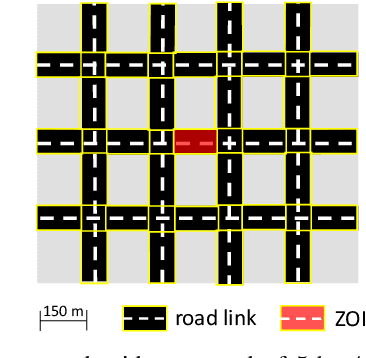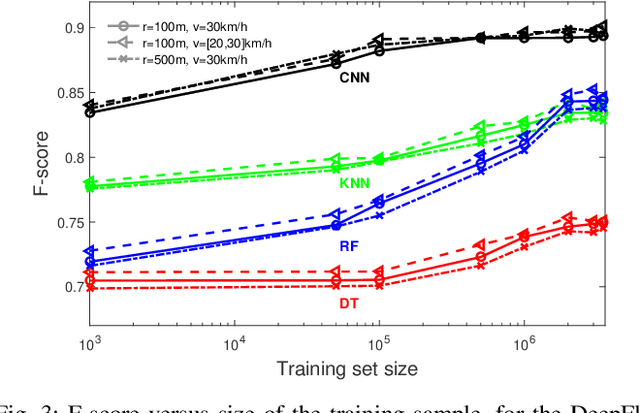Torsten Braun
DeepFloat: Resource-Efficient Dynamic Management of Vehicular Floating Content
Jun 11, 2019



Abstract:Opportunistic communications are expected to playa crucial role in enabling context-aware vehicular services. A widely investigated opportunistic communication paradigm for storing a piece of content probabilistically in a geographica larea is Floating Content (FC). A key issue in the practical deployment of FC is how to tune content replication and caching in a way which achieves a target performance (in terms of the mean fraction of users possessing the content in a given region of space) while minimizing the use of bandwidth and host memory. Fully distributed, distance-based approaches prove highly inefficient, and may not meet the performance target,while centralized, model-based approaches do not perform well in realistic, inhomogeneous settings. In this work, we present a data-driven centralized approach to resource-efficient, QoS-aware dynamic management of FC.We propose a Deep Learning strategy, which employs a Convolutional Neural Network (CNN) to capture the relationships between patterns of users mobility, of content diffusion and replication, and FC performance in terms of resource utilization and of content availability within a given area. Numerical evaluations show the effectiveness of our approach in deriving strategies which efficiently modulate the FC operation in space and effectively adapt to mobility pattern changes over time.
 Add to Chrome
Add to Chrome Add to Firefox
Add to Firefox Add to Edge
Add to Edge